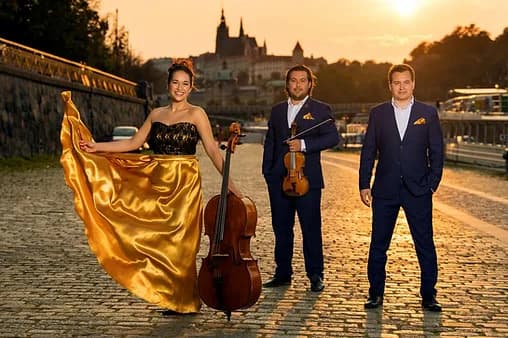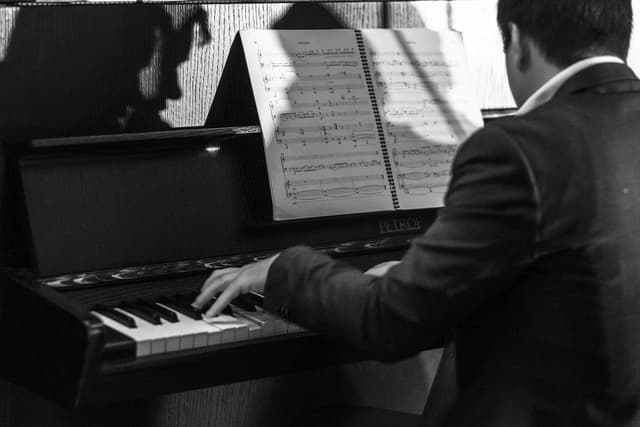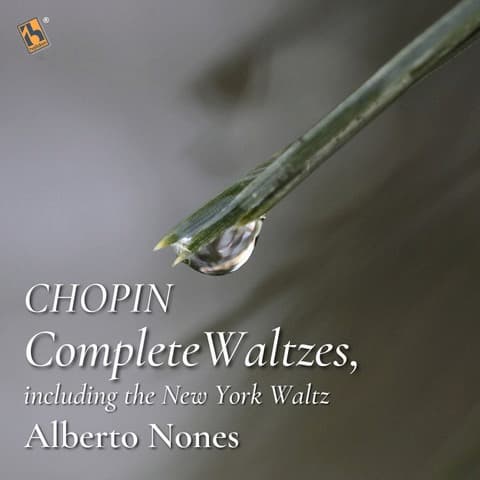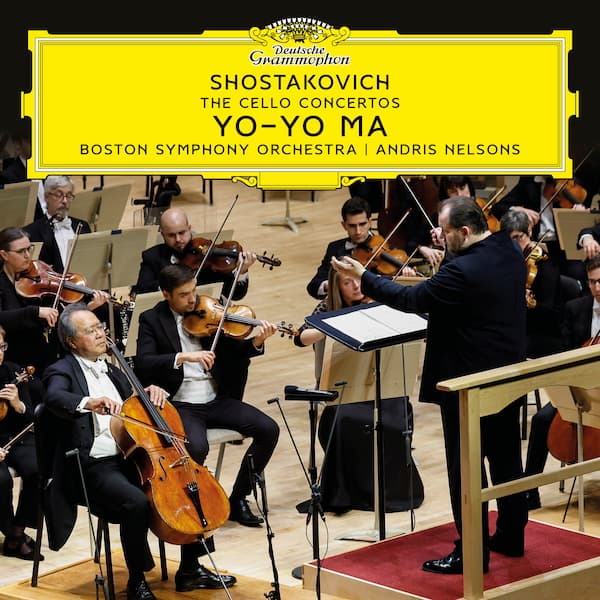Trio Bohémo was founded in 2019 by three talented Czech musicians: Jan Vojtek (piano), Matouš Pěruška (violin), and Kristina Vocetková (cello). In only five years, they have performed extensively all over the world and received numerous prestigious awards, including the first prize in the International Joseph Haydn Competition and top prizes in competitions around Europe. Their program often involves repertoires from their root, and in their recent album debut, the recording features Smetana’s Piano Trio in G Minor, Op. 15, and Schubert’s Piano Trio No. 2 in E flat major, Op. 100. Pianist Jan Vojtek will share with us about the trio and this new album.
CD Smetana & Schubert Piano Trios – Making of the debut album Vol. 1, Trio Bohémo
Can you tell us about Trio Bohémo? How did you meet Matouš Pěruška (violin) and Kristina Vocetková (cello)?

Trio Bohémo
It was actually a set of fortuitous events. Kristina and Matouš have known each other for quite a long time, as they both grew up in Prague and have been playing together since high school. In contrast, I spent my formative years at the Liszt Ferenc Academy of Music in Budapest, where I began studying at the age of 14. Kristina later joined the Liszt Academy for her bachelor’s and master’s degrees, and although we knew of each other, we didn’t truly connect until much later.
The turning point came when our school sent us both to a festival in Portugal, which gave us the opportunity to really get to know each other and discover our joy in playing together. A few months later, I crossed paths with Matouš in Budapest, where he also gave a concert. His pianist had to cancel just two days before the performance, and Kristina asked if I could step in. I agreed, and that led to us realising how much fun we would have playing together.
In 2019, we officially formed Trio Bohémo, and it’s been five remarkable years since. One of the key elements that define us is the sheer joy we find in making music together, and I think our audiences can sense that energy and connection on stage.
How did the name Trio Bohémo come about?
The name came to us quite naturally after some time. I believe Kristina first suggested it. The word “Bohémo” has a dual significance for us. On one hand, it reflects our cultural roots in Bohemia, while on the other, it evokes the free-spirited nature of a musician´s lifestyle, which resonates with us, especially given how much we travel around for our concerts.
Congratulations on the release of your debut album. How long did it take from recording to release?
Thank you! The entire process, from recording to release, took roughly six months. We recorded the album in the UK in February, and although it was initially slated for an earlier release, everything moved fairly quickly. The production process can often take longer, particularly when it comes to the mastering stage, but we were lucky to work with an exceptional team. I’d like to give a special mention to our producer, Andrew Keener, and our sound engineer, Oscar Torres, who both played pivotal roles in bringing the project to life in such a short timeline.
The album is dedicated to the late Hatto Beyerle, a founding member of the Alban Berg Quartet, who coached many young ensembles. Did he coach Trio Bohémo? Could you share a memory or two from your time with him?

Jan Vojtek
Yes, Hatto Beyerle was incredibly special to us. We had the privilege of working with him for several years, and he had a profound influence on our musical journey. He and Kristina shared a deep friendship—they could spend hours discussing everything from philosophy to the intricacies of music and even broader reflections on life itself. In the final months of his life, we were fortunate enough to spend some valuable moments with him, and his insights continue to shape our approach to music. His guidance still resonates in how we make music today, even down to some fundamental aspects.
It must have been wonderful to have such a mentor.
Absolutely. Having someone like Hatto Beyerle as a mentor was truly a gift, and he wasn’t the only one. The teaching we received at the Chamber Music Academy was transformative for us. It offered a completely different style of instruction compared to what we had experienced in Budapest. It was, without exaggeration, life-changing.
Has your experience with chamber music influenced your approach to playing as a soloist?
Undoubtedly. From the moment we formed the trio, my focus shifted almost entirely to chamber music. Over the past five years, I’ve only performed as a soloist in two or three concerts. Last year, I had the chance to play the Grieg piano concerto with an orchestra, and I could immediately feel how much my chamber music experience had influenced my approach. Learning the piece was a very different process compared to how I would have approached it five or six years ago. When playing with an orchestra, I now see it as a form of chamber music—we’re all part of the same musical fabric, creating something together rather than just focusing on the soloist’s role.

The album features Smetana’s Piano Trio in G Minor, Op. 15, and Schubert’s Piano Trio No. 2 in E flat major, Op. 100. Who made the decision to record these two works?
Before recording the album, we had already performed Smetana’s trio during our debut in London’s Wigmore Hall, and we felt a strong connection to the piece. Given that this year marks Smetana’s 200th birthday, it felt like the perfect choice. After deciding on Smetana, we wanted to pair it with another masterpiece. Schubert’s piano trio seemed like an ideal fit; both pieces were written by composers in their thirties, and as we are also around that age, we felt a personal affinity with both works. The two trios complement each other beautifully.
Were there any particularly challenging sections of these works?
Certainly! One of the main challenges in both pieces is handling the extreme dynamic shifts, particularly in the quieter passages. Playing very softly while maintaining clarity, especially in fast sections, can be quite tricky. This is something almost every pianist struggles with when they first begin playing chamber music, and it took me some time to adjust when we started the trio. Kristina and Matouš have been instrumental in helping me refine my approach. I also enjoy experimenting with the left and middle pedals; funnily enough, I feel I can work quite well with all the pedals on the piano while being absolutely incapable of mastering three pedals in a car. I tend to avoid the right pedal, though, as it often muddies the clarity of the sound, which I think is a bigger issue in chamber music than in solo playing.
In the Schubert trio, for instance, I feel we managed to achieve some lovely pianissimo passages, and our sound engineer, Oscar Torres, captured them beautifully. It’s always rewarding when you can bring out those delicate nuances.
The album is now available on all major online streaming platforms.
Trio Bohémo will play in the UK this autumn before embarking on a tour to the United States. To learn more about them, please visit their website: triobohemo.com.
For more of the best in classical music, sign up for our E-Newsletter



